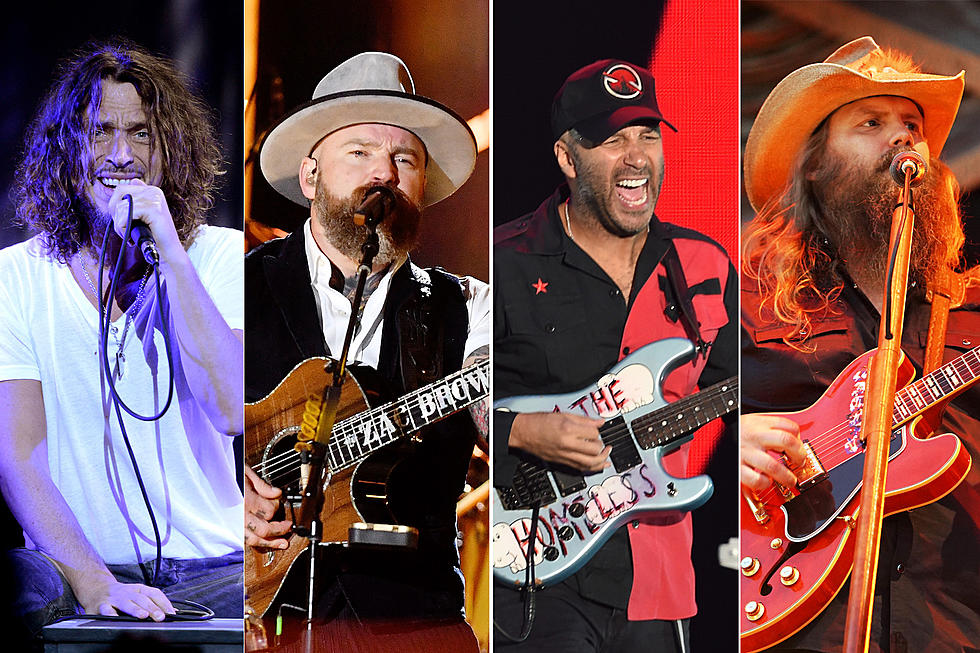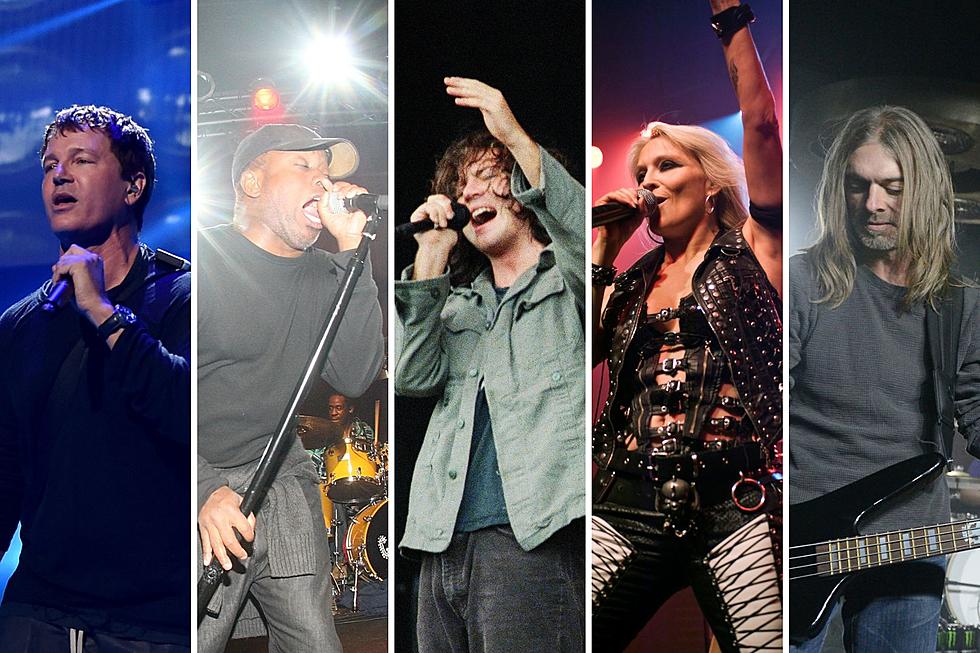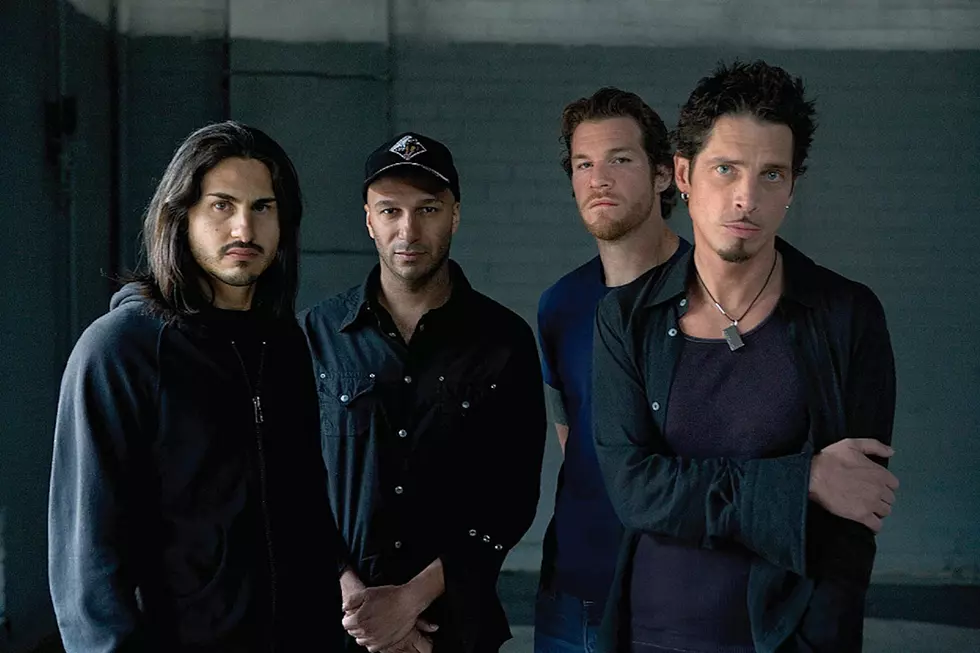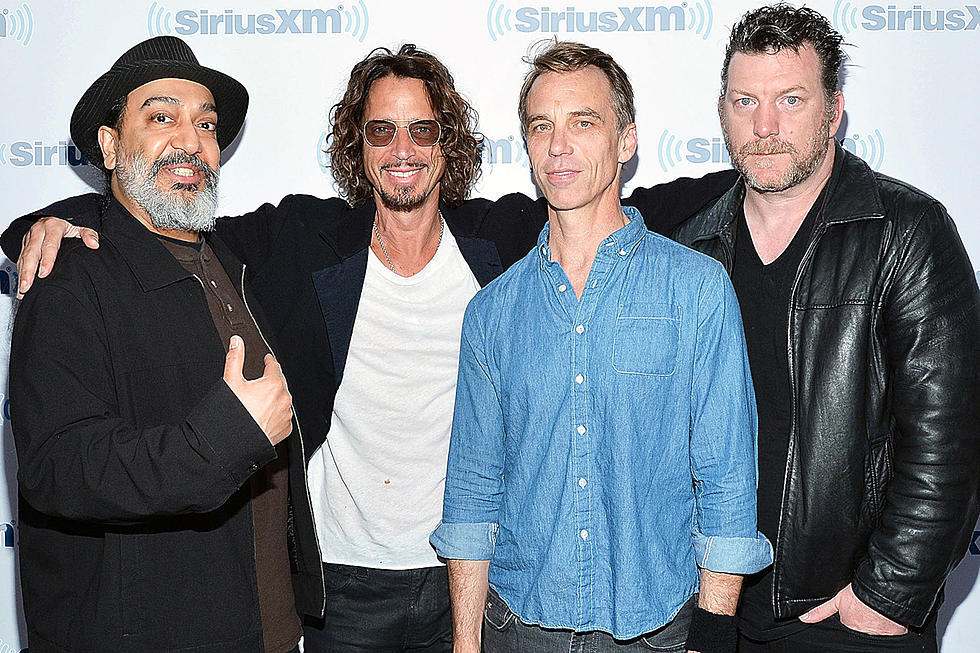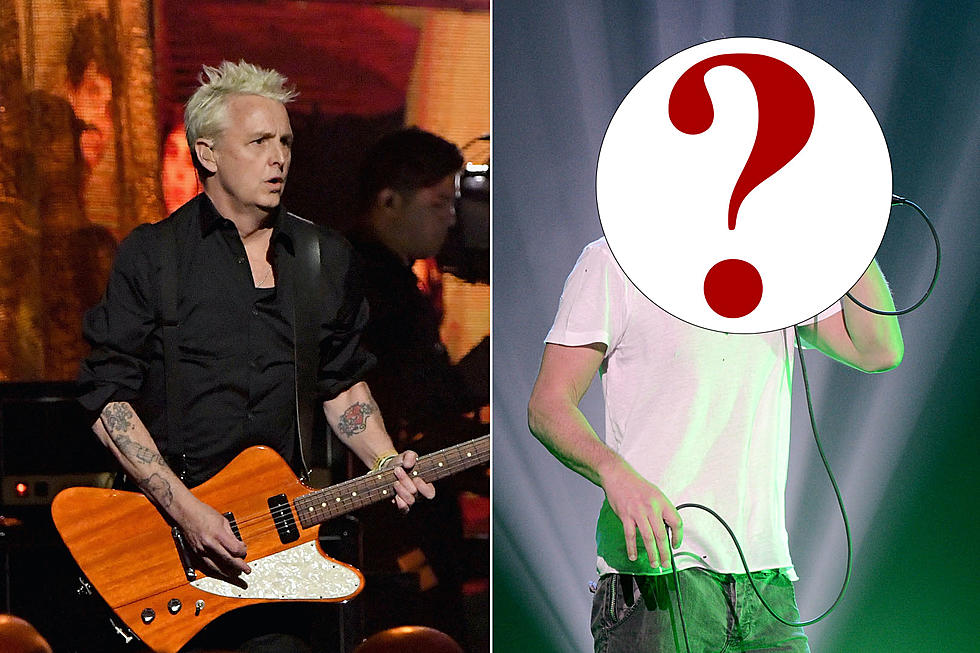
Chris Cornell, 1964 – 2017
Chris Cornell will be, for many people, the sound of grunge, making his passing last night (May 17) that much more devastating. His distinctive voice was first introduced to the mainstream when Soundgarden was still considered a heavy metal band and their third album, Badmotorfinger, came out in the fall of 1991. Propelled by the singles "Jesus Christ Pose," "Outshined" and "Rusty Cage," it was one of the records that helped usher in the the burgeoning Seattle scene along with Nirvana's Nevermind and Pearl Jam's Ten.
Soundgarden had been a fixture on the Pacific Northwest scene since the mid-80s, one of a crop of regional hopefuls led by Mother Love Bone, whose singer, Andrew Wood, was Cornell's best friend. Wood died from a drug overdose in 1990, leading Cornell to pen an entire album in tribute which became Temple of the Dog, whose sole album came out in the spring of 1991.
By the time Superunknown was released in 1994, the initial grunge boom was over, and Soundgarden was proving to be one of the more resilient acts that would outlast some of their peers by being fully entrenched on both radio and MTV with the massive hit "Black Hole Sun" reaching an even wider audience. Internal tensions tore away at the the group, and they broke up in 1997 following a tour for their fifth album, Down on the Upside.
Cornell began to carve out a solo career, first appearing on the Great Expectations soundtrack with the ballad "Sunshower," and then delivering Euphoria Morning, which displayed a much more delicate side than the caterwaul over punishing guitars he had become known for in Soundgarden. But his penchant for heaviness would in 2001 draw him to the core members of Rage Against the Machine, who were looking for a new singer in the wake of Zack de la Rocha's departure.
They would form Audioslave, which represented a sort of career rebirth for Cornell. He was able to balance the loud and the quiet, effortlessly shifting from the power of "Cochise" and "Show Me How to Live" to the softer - yet no less poignant - "Like a Stone" and "I Am the Highway." The pedigree of the group all but assured they would be a success, drawing in fans of both respective former outfits along with a new audience. Three albums in five years showcased how well Audioslave gelled musically, but with a Rage reunion at the 2007 Coachella Festival and Cornell's growing frustration with being confined to a band situation, he again decided to go solo, citing "personality conflicts" and "musical difference" with the rest of the group.
The 2007 solo work Carry On was well received though its follow-up, 2009's Scream, helmed by hip-hop producer Timbaland, was widely panned as Cornell attempted to infuse dance beats into his songs. Still, he was unapologetic about pushing his musical boundaries.
The past several years have seen Cornell both move forward while embracing his past. Soundgarden reunited in 2012 for the album King Animal. The band was set to headline festivals this spring and there had been talk of a new album. He was on the road when the singer was found dead last night. He resurrected Temple of the Dog for a brief tour -- their first ever -- late last year. This January, he even linked back up with Audioslave, performing at the Anti-Inaugural Ball spearheaded by guitarist Tom Morello and the band Prophets of Rage. All the while, Cornell was touring heavily, doing acoustic "Songbook" tours where he delved into all the phases of his career and pulling out covers like Led Zeppelin's "Thank You" and John Lennon's "Imagine."
The last song Cornell sang at Detroit's Fox Theatre was "Slaves & Bulldozers" from Badmotorfinger. He added a bit of Led Zeppelin's "In My Time of Dying" into the song.
Cornell was initially married to Susan Silver, who managed both Soundgarden and Alice in Chains. They had one daughter, Jillian, and the couple split in 2004. He would later marry Vicky Karayiannis, a music publicist, and the couple had a daughter Toni and son Christopher. Together Chris and Vicky founded the Chris & Vicky Cornell Foundation in 2012 that was designed to help protect children in vulnerable situations. Learn more about the foundation here. Cornell had also supported MusiCares, Nordoff Robbins and the Save the Music foundations.
Our condolences to Cornell's family, his extended Soundgarden family and a fond thank you to the late vocalist for the amazing music provided throughout the years.
See Chris Cornell in 10 Rockers Who Switched Roles in Their Own Band
More From Loudwire
